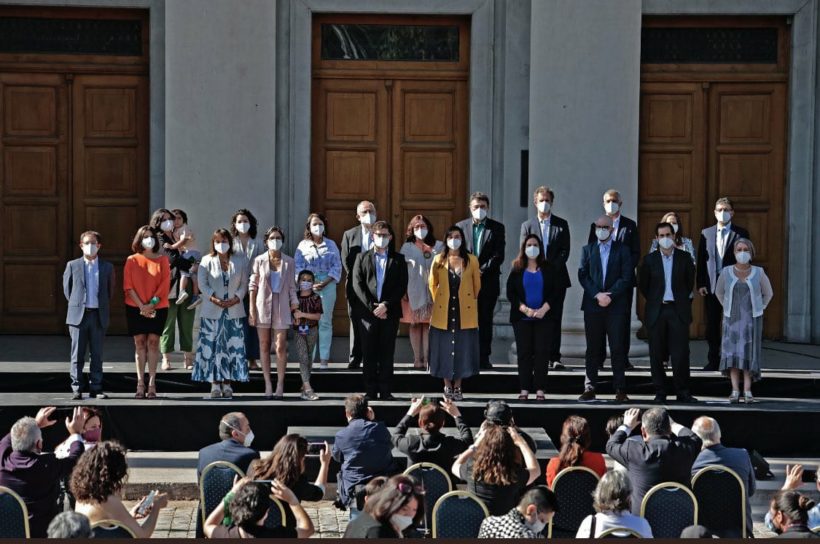Early this morning Gabriel Boric presented those who will make up his cabinet from 11 March. The team is made up of 14 women and 10 men.
The new president, who is about to turn 36 and will be the youngest ruler in Chilean history, will be accompanied by a government team that promises profound social transformations and is probably the most diverse ever seen in the country: more women than men, half of them trained in public education, some members of parties that leave their political coalition, others independent; they are a symbol of a Chile that is moving away from the social elites that have governed since the end of the dictatorship.
They are the force of an era that represents a generational energy of transformation that has learned to appreciate history and those who came before them. They represent fresh air, youth, the new, but in awareness of the historical chain of processes. They also represent the fact that the status quo or conservatism is the worst thing that can happen to Chile at a time when the world is changing rapidly.
The Minister of the Interior – which in turn is the post that subrogates the President of the Republic and coordinates the ministerial cabinet – will be the former president of the Medical Association, Izkia Siches – an independent – 35 years old, with a daughter just a few months old. A woman with guts, she has more than proved it for a long time. She is a recognised leader in Chilean society for the role she played in the most difficult moments of the pandemic.
With firm opinions but at the same time open to listen and to call across the board for the common good over personal interests, she managed to give a sense of purpose to a medical association that for a long time had only defended the interests of a very small sector, and from there she spoke to society. She will serve as Minister of the Interior and Public Security, which is a tremendous challenge, because it is a ministry that has traditionally been a fiery one.
The post of Chancellor will be held by lawyer Antonia Urrejola, a member and later president of the Inter-American Commission on Human Rights. Recently, in an interview with the BBC, Gabriel Boric said, with regard to foreign relations, that “It gives me great hope and I hope to work side by side with Lucho Arce in Bolivia, if Lula wins the elections in Brazil with Lula, the experience of Gustavo Petro if he consolidates in Colombia. I believe that there we can build a tremendously interesting axis”, which will surely be the direction in which Chilean diplomacy is oriented.
The Defence portfolio will be headed by the former President of the Chamber of Deputies, Maya Fernández, a socialist. Because this cabinet incorporates members of the different political parties of the coalition Apruebo Dignidad formed by the Frente Amplio and the Communist Party, but also socialist, PPD, radical and liberal figures, thus broadening the range of parties included in a cabinet that is diverse in political terms and also inter-generational due to the incorporation of people from older generations, as is the case of the future Minister of Housing and Urban Development, Carlos Montes, 75 years old.
But the political heart of this team will be formed, in addition to Izquia Siches, by Giorgio Jackson and Camila Vallejo, 34 and 33 years old respectively, who will assume the General Secretariat of the Presidency and of the Government, located in the Palacio de La Moneda. They are the same comrades in struggle who, together with the man who now becomes President of the Republic, began the first student demonstrations in 2006, demanding their right to free, quality education. Instead, for the first time in years, a teacher will finally be put in charge of the Ministry of Education. He will be taken over by Marco Ávila, 44, a member of Revolución Democrática.
Let us hope that this great team of experts will navigate the turbulent waters of these times with their sights set on the major changes that can make Chile a fairer, more inclusive, decentralised and equal country.










